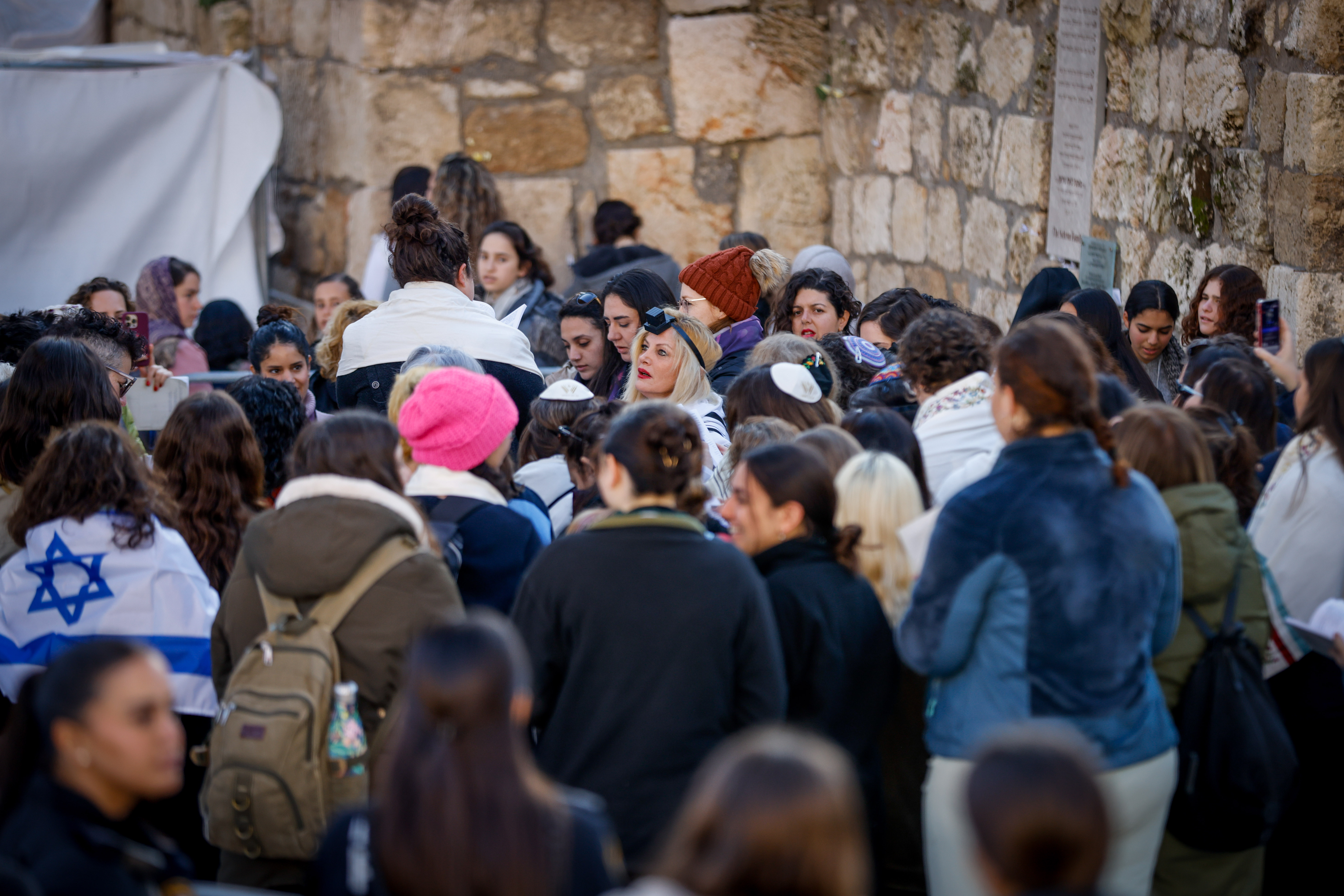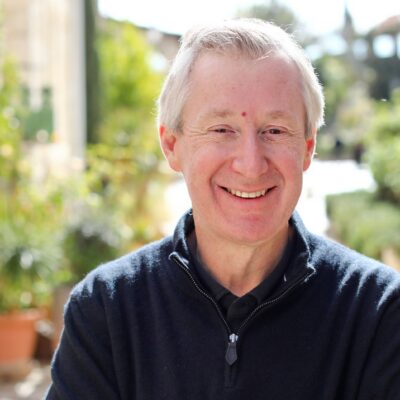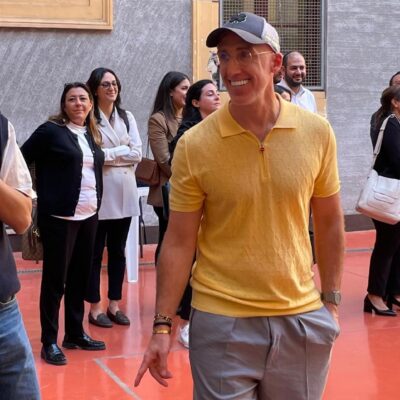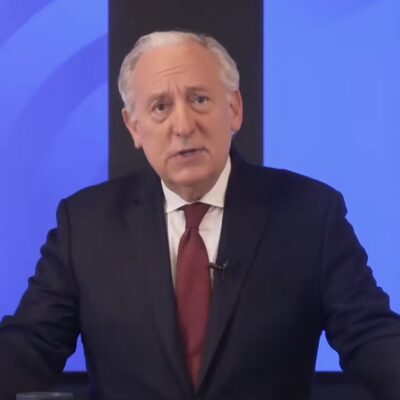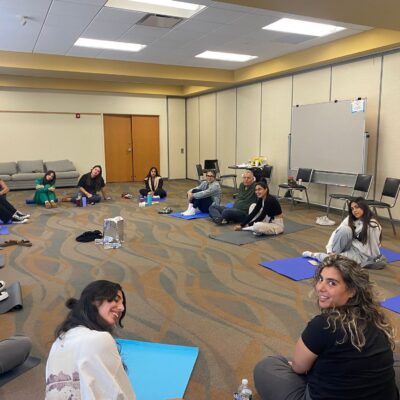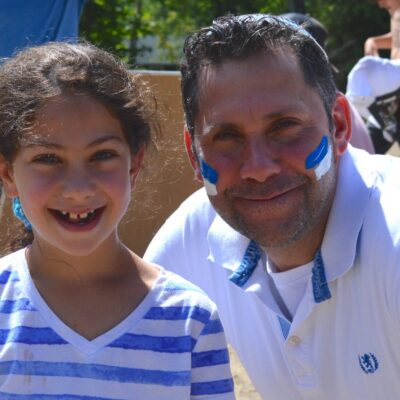Opinion
You’ve heard why you should invest in Jewish day camp. Now explore how.
“I love that camp introduces our daughter to Israeli songs, and people who live their Judaism in different ways than she does.” That’s just one of the many testaments I’ve kvelled over this summer in my role as director of day camp initiatives at Foundation for Jewish Camp (FJC), where I’ve had the privilege to preview qualitative data from the Day Camp Satisfaction Insights, FJC’s parent- and staff-facing survey tools. I’ve also pored over notes from counselors, proclaiming their deep connection with their campers and fellow staff members, and chuckled alongside parents whose kids proclaimed every day that they “didn’t have a great day – they had an awesome day!”
Recently, eJewishPhilanthropy published an opinion piece by Aaron Greenberg, “Jewish Day Camps Work: Are They in Your Investment Portfolio?” He brings much-needed attention to the vital issue of equitable investment in day camps, a cause that FJC agrees with and has been passionately championing for over a decade.
Now, as we review the Day Camp Satisfaction Insights and our annual Camp Census, analyzing data from the 160-plus day camps representing 90,000-plus campers and staff in the FJC network, there’s an opportunity to go a step beyond acknowledging the need for investment. I’d like to suggest some data-informed, concrete ways in which funders and philanthropists can contribute to the growth and sustainability of Jewish day camps:
1. Jewish Impact: Tiny humans, singing, dancing, welcoming Shabbat alongside their teenage counselors who care for them with so much love and kindness – what could be better? Supporting the creation and enhancement of innovative, educational and culturally enriching programs can elevate the quality of day camp experiences and reinforce Jewish identity.
FJC is grateful to UJA-Federation of New York for funding groundbreaking work with day camp professionals in the New York area to help them find unique Jewish lanes for their camps from 2013 to 2019. That work is so important that we recently launched a new cohort of the Hiddur program. Hiddur, also formerly called the Jewish Coaching Project, is a program with a proven track record of deepening Jewish impact at day camp by supporting camps in developing and strengthening their Jewish purposes, and we are eagerly seeking funding partners to help expand it.
2. Affordability: Sometimes it seems that day camps are the Jewish communal world’s best-kept secret. They offer all the magic and joyful Judaism of overnight camp, at a much lower barrier to entry. Day camp professionals and parent agencies are deeply committed to creating wide-open gates and warm cultures of belonging.
Establishing or contributing to scholarship or incentive funds can ensure that children from all backgrounds have access to enriching Jewish day camp experiences, regardless of their financial circumstances. FJC is excited to announce a new day camp scholarship pilot at five hand-selected day camps for 2024. Generously funded by The Tepper Foundation, the pilot will have major implications for what we understand about affordability and its barriers to camp participation.
3. Belonging: Day camps excel at inclusion, and day camp professionals have led the entire field of Jewish camp toward a more inclusive vision, one where campers and staff of diverse abilities can come together in a joyful community. As such, Greenberg is correct that capital improvements are indeed critical.
FJC’s Yashar Initiative, funded by The Harry and Jeanette Weinberg Foundation, has provided millions in funding to day camps striving to become more accessible to campers and staff with disabilities. The Yashar Initiative serves as an exemplary model for funders who want to support inclusion in their local communities and similarly prioritize infrastructure improvements that promote inclusivity. FJC has also explored and piloted in-depth DEI training for day and overnight camp professionals, funded by UJA-Federation of New York, the Rose Community Foundation in Colorado and the Jewish Community Foundation of Los Angeles.
Resources to support mental health in camp communities – funding to hire qualified mental health professionals, enhancing counselor training and integrating wellness programming into activity areas – are also vital. That’s why FJC is grateful to the Marcus Foundation for supporting our Yedid Nefesh program, which has provided critical funding to thirty day camps to date.
As Aaron so rightly said, Jewish day camps are amazing! And we know there’s more to do. I encourage all readers, especially funders and philanthropists, to join in this important conversation and actively explore how they can contribute to the future of Jewish day camps. Connect with FJC to learn more about bringing one or more of these initiatives into your community and beyond.
Jenni Zeftel is the director of day camp initiatives at Foundation for Jewish Camp. She lives in the Bronx with her daughter and husband, Jon, who is also a Jewish communal professional. They met at Jewish day camp.

 Add EJP on Google
Add EJP on Google